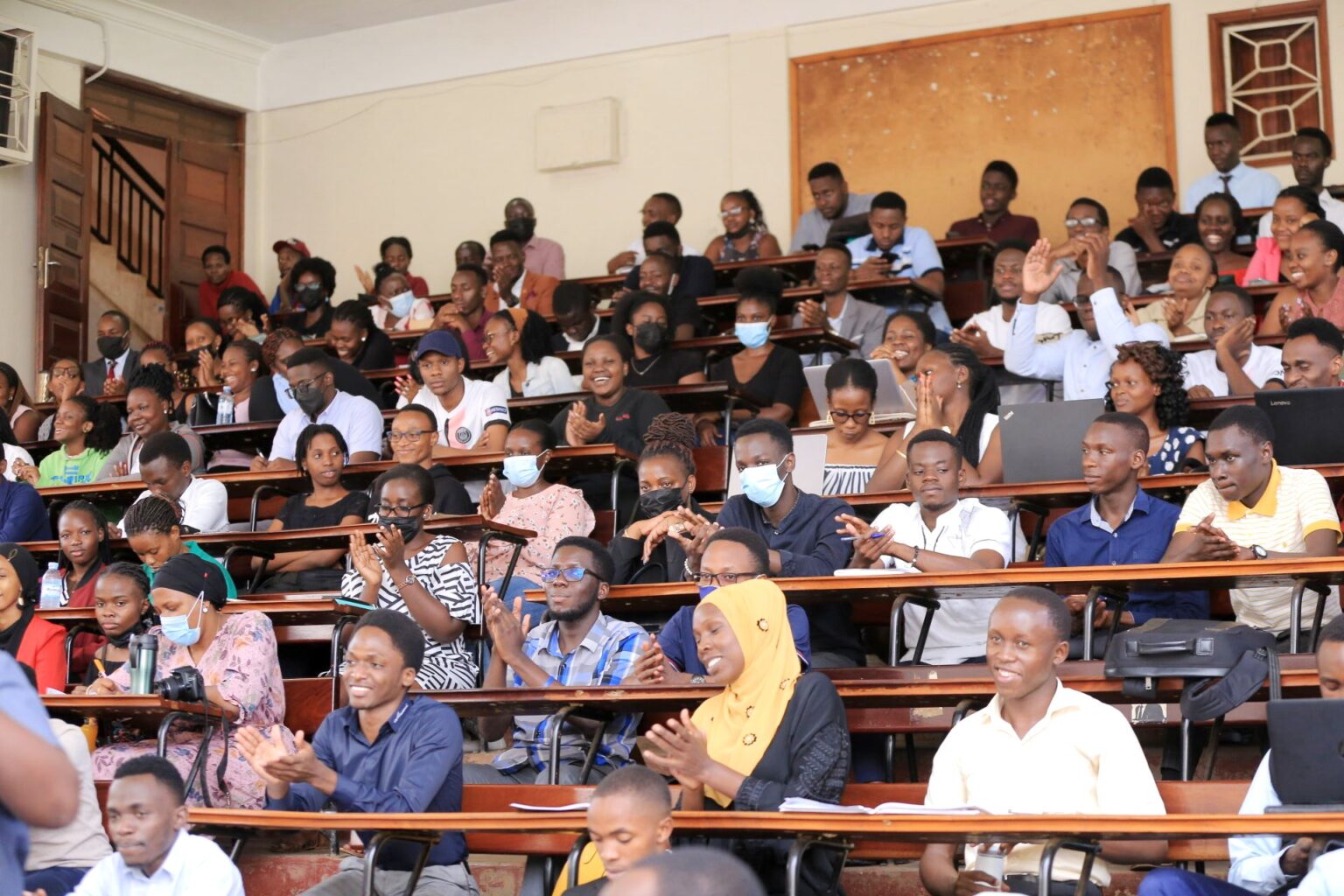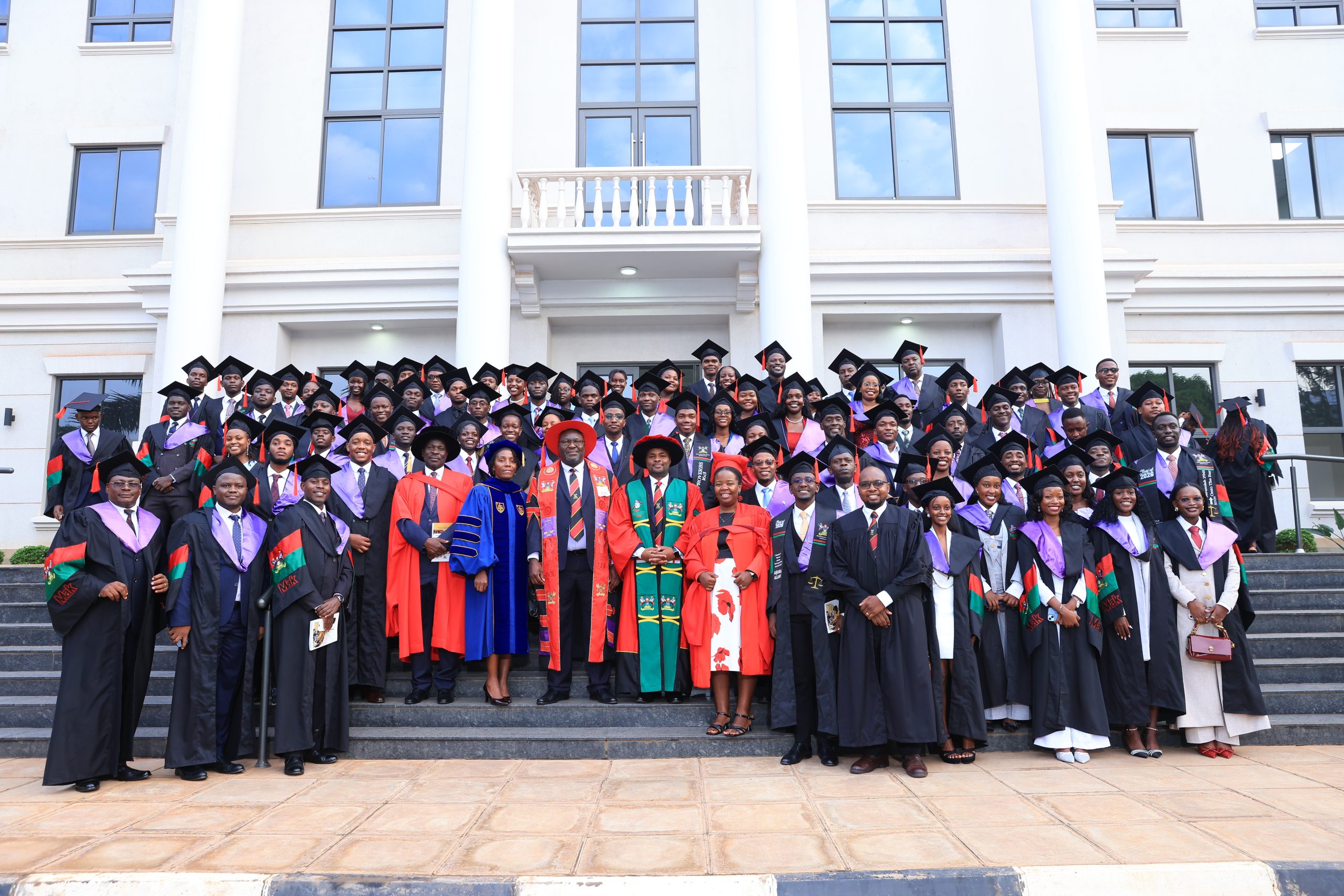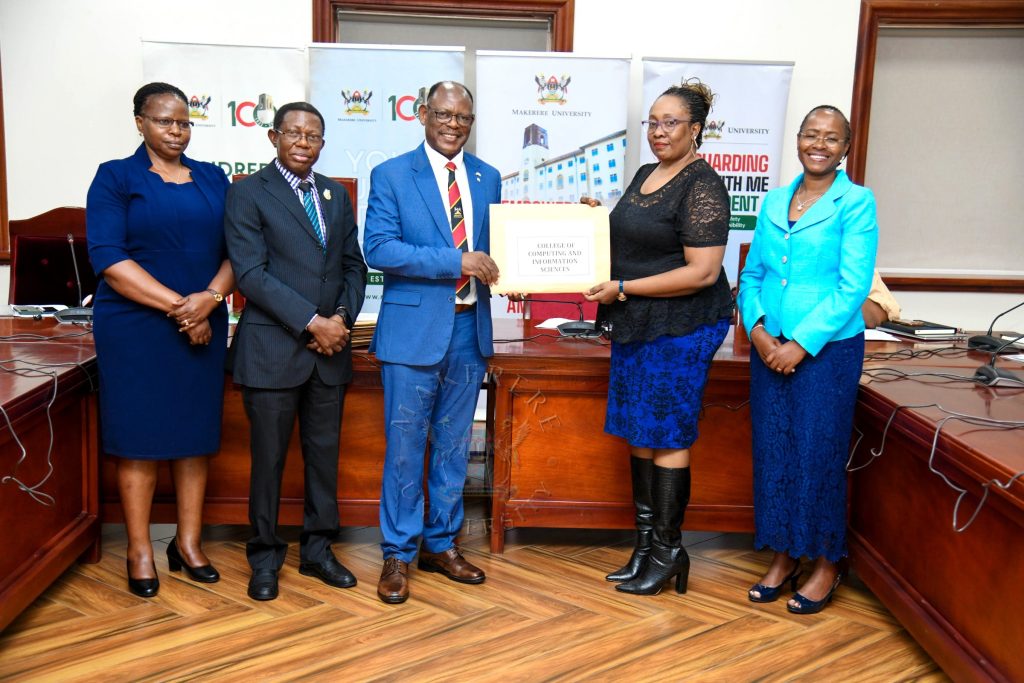Inaugural Makerere Law Journal Symposium held
The Makerere University School of Law (SoL) held the Inaugural Makerere Law Journal (MLJ) Symposium on 17th June 2022 under the theme, ‘Charting the Course and Diversifying Scholarly Content’. The symposium was held to give opportunity to authors of outstanding papers in recent issues of the MLJ to present their work to the general membership of the Makerere Law Society (MLS) and the public. The symposium was supported by the Public Interest Law Clinic (PILAC), SoL.
The MLJ is a student-edited law journal published by the SoL under the auspices of the law students’ union, MLS. The journal founded in 1971 considers submissions from legal writers, students, and scholars within Uganda and beyond. Quoting the pioneer editor of the MLJ, Daniel Omara Atubo, ‘the journal was intended as a medium for discourse on the immense problems of law’. The submissions may be for education purposes; aimed at causing law reform in the jurisprudence of Uganda or other African jurisdictions on matters of legal doctrine and philosophy; human rights; public policy; governance; economics among others.
Previously, the MLJ was printed annually, however, it is now a free-access online publication that considers, reviews and publishes submissions on a rolling year basis throughout the year. Access issues of the MLJ here: https://makererelawjournal.org/. At the inaugural symposium four papers were presented and interrogated by subject experts. Highlights of the papers are detailed below.

Tukwatanise Hans Rwantangare presented his paper titled, ‘A Case for The Application of the Theory of Deferred Indefeasibility in Uganda as an Instrument to Promote Indefeasibility of Title Under the Registration of Titles Act’. Abstract: The theory of deferred indefeasibility as opposed to immediate indefeasibility is presented as a means to improve security of title today. A comparison is made of the relative merits and demerits of the two theories of deferred and immediate indefeasibility. In so doing, the aim is to reconcile the outdated theory of immediate indefeasibility with the modern legal regime and to preserve its relevance in the prevailing socio-economic situation. In a comparative analysis, other jurisdictions, especially Canada are studied to ascertain how they have evolved their interpretation of the same. Inevitably, indefeasibility, as a concept of real property is analysed considering human rights perspectives as relatively impacted by the two theories.For more about Hans’ paper click: https://makererelawjournal.org/view-publication/35. The paper was discussed by Dr. Rose Nakayi, Senior Lecturer at SoL. Dr. Nakayi is a seasoned expert in land law and rights and an advocate for the reform of the mailo land tenure system.

Fatumah Ramathan-Nabulya presented her paper which had reviewed a case Baryamureeba V Kabakonjo Abwooli. In her review she argued that it was ‘A Win for Women’s Property Rights in Cohabitation’. Abstract: Marriage, especially at its dissolution, tends to be contentious owing to its cross cutting effects on property rights, children custody, spousal maintenance among others. It is more complex when that “union” is not legally recognized. Over 65% of Uganda’s couples are left out under the law because their arrangements are not contracted in accordance with the laws provided for. This potentially subjects women to unequal social laws (patriarchy) usually with no legal remedies. Hence, marriage, due to its overarching effects, can be breeding ground for the entrenchment of gender inequality. This paper reviews a High Court decision through which judicial activism is employed to lessen the plight of cohabiting women. Due to the time they have been in operation, it is often difficult to see our matrimonial laws for what they really are; patriarchal and gender indiscriminate. There is need for Judges to be fully alive to the history of these laws and the debates that led to their passing, to correct the wrongs of history.For more about Fatumah’s paper click: https://makererelawjournal.org/view-publication/23. Dr. Diana Musoke, Senior Lecturer, Islamic University in Uganda and expert on family law discussed the paper.

‘The Human Rights Implications of Uganda’s Borrowing’ paper was presented by Ruth Muhawe. Abstract: The relationship between the sovereign debt of developing countries and the protection of the social rights of citizens in those countries has received considerable analysis from the economic, political and moral perspectives, but relatively little has been written from the legal point of view. Consequently, this paper provides legal insights into the lingering crisis that sovereign debt poses to human rights, with a specific focus on the economy of Uganda. The paper is particularly concerned with examining what Uganda’s debt burden means for the basic observance and enjoyment of human rights by its citizens of both the present and the future.For more about Ruth’s paper click: https://makererelawjournal.org/issues (MLJ 2019 Issue) A constitutional law and international law expert, Dr. Busingye Kabumba, Senior Lecturer at SoL was the discussant of the paper.

A joint paper titled, ‘The Legal Risks of Cryptocurrency On State Sovereignty; A Case Study of Uganda’ was presented by Ntamugabumwe Victor & Joshua Kingdom. Abstract:State sovereignty is conventionally known to mean that all states are equal under Public International Law, the decisive criterion being effective power over territory and people. Indeed, the most rudimentary definition of a state is the organization of power over territory and people within that territory. However, sovereignty today depends much on the state’s monetary independence – the state’s capacity to control the flow of money and currency in their jurisdiction. With the constant evolution of money transactions from Cash to credit and then to crypto, the state must always be ready for each revolution so that sovereignty is kept. Cryptocurrencies work outside the existing legal financial framework and as such avoid the state’s invented structure to control their monetary policies, stability to achieve sovereignty.For more about the paper click: https://makererelawjournal.org/view-publication/17




